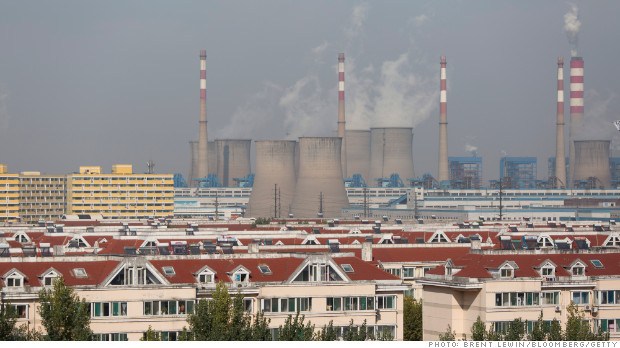Economists are questioning whether a published GDP target distracts from the country’s bigger issues.

FORTUNE — When China’s Premier Li Keqiang told a supportive audience of 3,000 delegates in Beijing last week that the country would aim for 7.5% GDP growth in 2014 — the same target of the past two years — stocks rose and traders predictably cheered. But the news also produced groans from a small but growing number of economists who believe China’s annual GDP target dangerously distracts the country from its huge problems of pollution, exploding debt, and ongoing reforms. They say it hurts more than it helps.
First, some background: China has released GDP targets for more than two decades, beginning shortly after the country first calculated GDP in 1985. (Before that, China relied on the Material Product System to measure economic output, a system borrowed from the Soviets. MPS’s flaw is that it doesn’t measure services, which in a country as large as China makes it kind of worthless.)
GDP targeting worked well for China initially. Local governments strived to meet economic directives and freed tens of millions from poverty in the process. But as China cracked into the world’s top five economies earlier this decade and then moved into the No. 2 spot (behind the U.S.), GDP targets began showing their dark side. Local governments were pursuing growth at any cost. In China, food safety has been compromised. Pollution is widespread. Shadow debt exists across smaller cities as localities push for growth.
“When you are poor country, GDP targeting has advantages,” says Wei Li, professor of economics at the Cheung Kong Graduate School of Business in Beijing. “But once you’re in middle income, like China, people start to value quality of life.”
Li points out that China is in a tough spot. In the U.S., for comparison, local governments are rewarded for providing better services because better services attract more people, and tax revenues increase. In China, because local governments can’t collect taxes — they instead rely on allocations from the central government — they aren’t rewarded for attracting more people with offerings such as, say, clean air. The only people they seek to attract are those who will boost local GDP, thus impressing the central government into allocating them a larger share of revenues. Localities seek out GDP-boosting businesses, sometimes polluting ones or those that require big incentives, at a detriment to citizens’ quality of life.
GDP targets are used in part to legitimize the central government. “Passing up the opportunity to lower or abandon the growth target shows the government’s concern with maintaining public support for its agenda,” writes Andrew Batson, China Research Director at Gavekal Dragonomics. The target signals a return to the country’s pro-growth policies after it tightened runaway credit last year. “This is disappointing to those like ourselves who would like to see China move more quickly away from its obsession with growth targets,” Batson says.
China’s leaders seem to recognize that while publishing GDP targets is problematic, it’s something they are helpless to fix. A day after Li Keqiang released the latest figure at China’s largest annual government meeting, Finance Minister Lou Jiwei told a press briefing that it would be okay if China slightly missed the mark. He said 7.2% could be acceptable, stressing the importance of job creation, inflation control, and economic gains over hitting the target.
The instant backing away from this year’s GDP target seemed almost premeditated, like the government wanted to release an impressive figure before explaining why it wasn’t really that big of a deal if they met it.
Economists aren’t optimistic that China will stop publishing targets anytime soon. But China’s backpedaling might be good enough news for now.